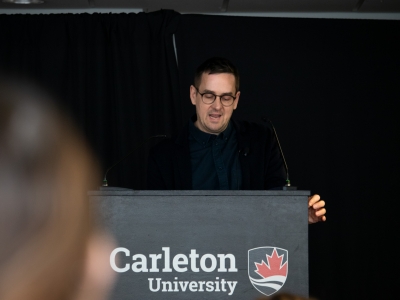
When it comes to water and the climate, governments face a fundamental problem.
They’ve not only promised every drop of river water to corporations and cities, they’ve allocated more water than actually exists.
“These decisions were made 50 or 100 years ago,” explains Inger Weibust, the co-editor of Multilevel Environmental Governance: Managing Water and Climate Change in Europe and North America. “Now that we have severe shortages, nature is imposing a hard limit. They can’t make more water.”
Weibust, an assistant professor in the Norman Paterson School of International Affairs, will discuss her findings on Thursday, October 23 at 5:30 pm at Irene’s Pub, 885 Bank Street as part of the Author Meets Readers lecture series.
She will be joined onstage by Achim Hurrelmann, Associate Professor of Political Science at Carleton University and David B. Brooks, a natural resource economist at the International Institute for Sustainable Development and the POLIS Project on Ecological Governance at the University of Victoria.
Weibust edited the book with James Meadowcroft, a Canada Research Chair in governance for sustainable development in the Faculty of Public Affairs.
They report that the water shortages in places like southern Alberta and California are exacerbated when the government response is decentralized.
“Once you decentralize, the need to keep water in rivers for ecological purposes is last on the list,” says Weibust.
She and Meadowcroft also compare the international response to climate change and how the oil sands are changing Canada’s profile.
“Canada faces unique challenges with our growing emissions. The EU, for instance, has nothing like it.”
Author Meets Readers is a monthly event held at Irene’s Pub and hosted by the Faculty of Public Affairs. It gives authors an opportunity to share their research with Carleton colleagues and the community at large.
Tuesday, October 21, 2014 in Groundbreaking Research, News, Research
Share: Twitter, Facebook



